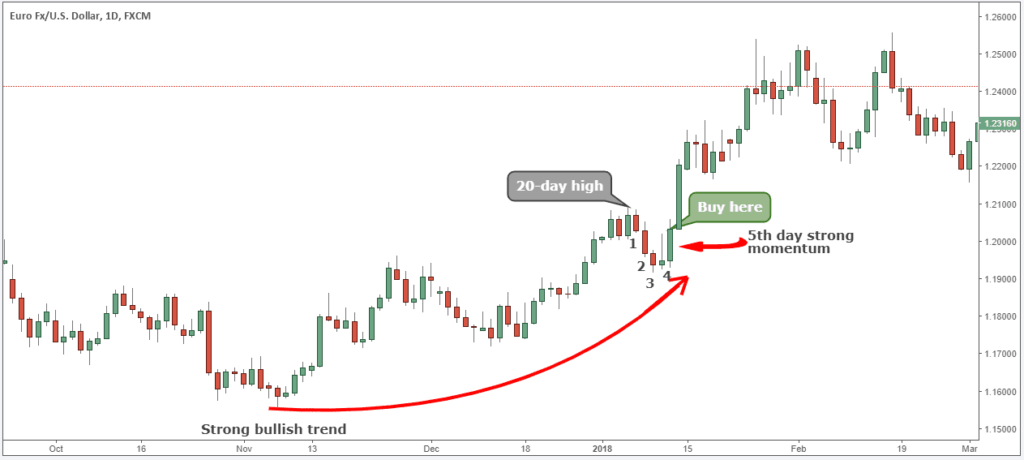Start Trading Today: Key Steps for Beginners
Trading is an activity that consists of buying and selling financial assets, such as stocks, currencies, raw materials, among others, with the aim of obtaining profits from fluctuations in market prices. This is why the question arises: What are the basic steps to start trading? Don't worry, we will answer it in the following paragraphs.
Trading is an activity that has gained popularity in recent years due to its potential to generate income and its accessibility through online platforms.
It is an opportunity to generate income because it allows you to take advantage of the opportunities offered by financial markets and obtain benefits from variations in the prices of financial assets.
However, it is important to note that trading involves risks and proper education and a beginner's guide are necessary before starting.
How to Trade
Trading is a financial practice that consists of buying and selling assets in financial markets. If you have wondered how to trade, this article will provide you with a complete guide to get you off to a good start. Below, we present the steps to trade and some useful tips for beginners.
What is Basic Trading?
Before delving into how to trade, it is essential to understand the basic concepts. Basic trading involves operations in markets such as stocks, currencies (Forex), cryptocurrencies and other financial assets. Traders seek to profit from fluctuations in the prices of these assets. It is important to have a clear understanding of the markets you wish to trade.
Steps to Trade
- Financial Education: Before we begin, it is essential to learn about the financial markets. There are numerous educational resources, from books and online courses to webinars and video tutorials.
- Choosing a Broker: Selecting a reliable broker is crucial. Make sure it is regulated and offers the necessary tools to operate efficiently.
- Opening a Trading Account: Once you have chosen a broker, open a trading account. This process generally requires verifying your identity and linking a bank account.
- Development of a Strategy: Before carrying out any operation, it is vital to have a clear trading strategy. Define your objectives, risk tolerance and analysis methods.
- Practice on a Demo Account: Many brokers offer demo accounts where you can practice how to trade without risking real money. Use this tool to familiarize yourself with the platform and your strategies.
How to Start Trading
Once you have followed the steps to trade, you will be ready to trade in the real market. Here are some additional tips for how to start trading:
- Stay informed: Financial markets are dynamic. Stay up to date with economic news and global events that may affect asset prices.
- Manage your Risk: Never invest more than you are willing to lose. Use tools like stop-loss to limit your potential losses.
- Analyze your Operations: Review and analyze your past trades to identify errors and improve your strategies.
The world of trading may seem complex, but knowing the basic things to know about trading is essential for any beginner. First, it is crucial to understand what trading is and how it works. The basic things to know about trading They include the difference between trading and investing, the types of financial markets, and the importance of risk management.
For those who wonder how to start trading, it is vital to start with a good education. Read books, take courses, and follow experts in the field. By understanding the basic things to know about trading, you will be able to make informed decisions and avoid common mistakes. Furthermore, when learning how to start trading, you will become familiar with trading platforms, technical and fundamental analysis, and basic strategies.
Finally, practicing with demo accounts will allow you to apply the basic things you know about trading without risking your capital, and better understand how to start trading effectively and safely.
Learning how to trade It may seem challenging at first, but with the right education and a well-defined strategy, it is possible to become a successful trader. Remember to follow the steps to trade and take advantage of the tools and resources available to improve your skills in the basic trading. Good luck on your journey into the world of trading!
For more information and resources on how to trade, Visit our website Emerge Profit.
Fundamental steps to start trading
Financial education and market understanding
Before starting trading, it is essential to acquire basic knowledge about finances and understand how financial markets work.
This includes understanding the different types of markets (stocks, currencies, commodities, etc.), how asset prices are determined, and how transactions are made.
It is advisable to use available educational resources, such as books, online courses and tutorials, to learn more about trading.
It is also useful to follow experts in the field and participate in online trading communities to learn from the experiences of other traders.
Choosing a trading platform
Once a solid knowledge base has been acquired, it is important to select a reliable and secure trading platform.
When choosing a platform, aspects such as regulation, security of funds, functionalities offered and ease of use must be considered.
Some popular and recommended platforms include MetaTrader, eToro, and Interactive Brokers, among others. The choice of a platform will depend on the profile and needs of the beginner trader.
Opening a trading account
Once the platform is selected, a trading account must be opened on the chosen platform. To do this, certain documents will be required and certain requirements established by the platform and financial regulations must be met.
It is important to ensure that you meet the requirements and provide the requested information accurately.
Additionally, it is advisable to select the right account type for beginners. Some platforms offer demo accounts that allow you to practice trading with virtual money before trading with real money.
This can be useful to gain experience and test strategies without risking money.
Choice of financial assets
In trading, there are different types of financial assets in which you can operate. Some of the most common include stocks, currencies, indices, commodities, and cryptocurrencies.
It is important to select the most suitable assets according to the objectives and risk profile of the beginner trader.
It is advisable to research and learn about the different types of financial assets available, their characteristics and the factors that affect their prices.
You can also follow news and events that could have an impact on asset prices.
Market analysis and strategy planning
Once the financial assets have been selected, it is necessary to analyze the market and develop trading strategies. There are two main approaches to market analysis: fundamental analysis and technical analysis.
Fundamental analysis is based on the study of economic, political and social factors that can influence asset prices. This involves analyzing economic news, earnings reports, economic indicators, and other relevant events.
On the other hand, technical analysis is based on the study of price patterns and technical indicators on charts.
This involves identifying trends, support and resistance levels, candlestick patterns and other technical indicators to make informed decisions.
It is advisable to use analysis and charting tools available on trading platforms to perform market analysis. It is also important to develop a trading plan that includes realistic goals and clear strategies.
Risk management and emotion management
Risk management is a fundamental part of trading. It is important to set loss limits and use risk management techniques to protect capital.
Some common risk management techniques include the use of stop loss and take profit orders, asset diversification, and proper position sizing.
In addition, it is necessary to learn to manage emotions and avoid making impulsive decisions based on fear or greed.
Trading can be emotionally challenging, and it is important to maintain objectivity and discipline in all trades.
We recommend establishing an effective risk management system and practicing emotion management techniques, such as meditation and visualization, to maintain a balanced state of mind during trading.
Execution of operations and monitoring
Once the analysis has been carried out and a strategy has been developed, it is time to execute the operations on the trading platform, it is important to follow the rules and parameters established in the trading plan and execute the operations in a disciplined manner.
After executing a trade, it is essential to track and monitor its performance.
This involves carrying out an analysis of open trades, adjusting strategies if necessary and making decisions based on market developments.
We recommend periodically reviewing the performance and effectiveness of the trading strategy, and making necessary adjustments to improve results.
@emergeprofit We leave you 2 keys to be successful in trading. If you want to start a challenge, remember that with the EMERGE20 coupon you get 20% off. If, however, you do not want to have an evaluation and want to enter directly, you can opt for a Direct Pass. With the EMERGE35 coupon you will be given a 35% off. #trading #tradingforex #forex ♬ original sound – Emerge Profit
Conclusion
In this article we unravel the basic concepts of what are the basic steps to start trading.
Trading can be an exciting opportunity to generate income and take advantage of opportunities in the financial markets, however, a detailed structure and beginner's guide is necessary to be successful in this activity.
We have provided a practical guide that covers the fundamental steps to get started in trading, from financial education to executing trades and following strategies.
We have also highlighted some practical tips for beginners, such as starting with a demo account and keeping a log of trades.



